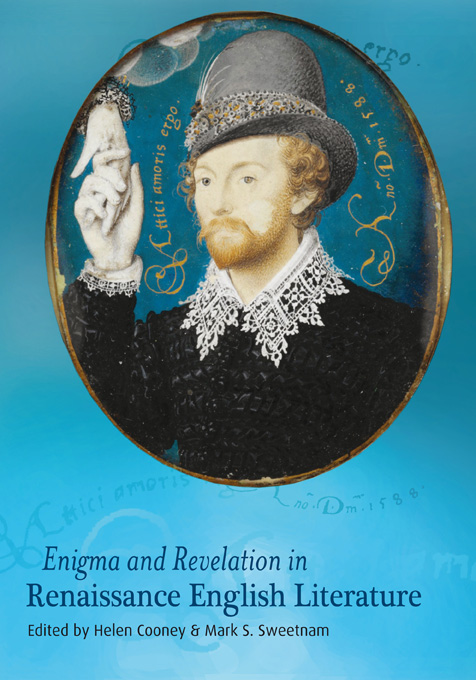Enigma and Revelation in Renaissance English literature
Helen Cooney & Mark S. Sweetnam, editors
‘Let se who dare make up the reste’: fear and the interpretation of Skelton’s Speke Parott
John Scattergood
The lady loves her will: riddling in The marriage of Sir Gawain
Erin Sebo
Anne Lock’s anonymous friend: a meditation of a penitent sinner and the problem of ascription
Deirdre Serjeantson
‘A certaine disgracing’: resonances of a Renaissance word
Cormac Ó Cuilleanáin
Facie ad Faciem: reader, protagonist, and self-reflection in Spenser’s Legend of Temperance
Helen Cooney
‘This concealed man’: Spenser, Ireland and Ormond (?) in Shakespeare’s As you like it
Thomas Herron
The enigma of divine revelation in Tourneur’s The Atheist’s tragedy
Rory Loughnane
Decoding landscape and fertility in early modern travels to Palestine
Paris O’Donnell
Ignorance is iniquity: the arcana imperii in the sermons of John Donne
Mark S. Sweetnam
Millennialism and the renewal of nature: Thomas Fairfax, the Diggers and Andrew Marvell’s ‘Upon Appleton House’
Crawford Gribben
‘Lycidas’ (1637) and timely reading: some observations on John Milton and Histories of Ireland (1633)
W.J. Mc Cormack
‘Very far from being dark and affectedly mysterious’: women, philosophy and the interpretation of Genesis 1–3 in seventeenth-century England
John Flood

